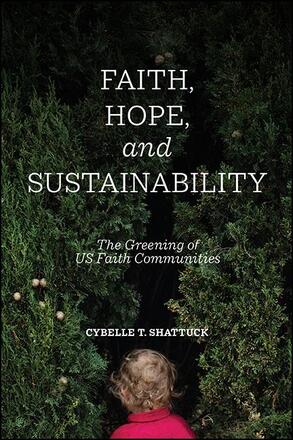
Faith, Hope, and Sustainability
The Greening of US Faith Communities
Alternative formats available from:
A cross-case analysis of fifteen faith communities striving to care for the earth and live more sustainably.
Description
Faith, Hope, and Sustainability explores the experiences of fifteen faith communities striving to care for the earth and live more sustainably. A church in Maine partners with fishermen to create the first community-supported fishery so they can make a living without overfishing. A Jewish congregation in Illinois raises extra funds to construct a green synagogue that expresses their religious mission to heal the world. Benedictine sisters in Wisconsin adopt caring for the earth as part of their mission and begin restoring one hundred acres of prairie, reviving their community in the process. Presbyterians in Virginia, dismayed by air pollution in Shenandoah National Park, take courage from their conviction that "God does not call us to do little things" and advocate for improved national air pollution policies. Stories such as these highlight the variety of environmental actions that people of faith are enacting through congregational venues.
Beyond simply narrating inspiring stories, however, this book compares these case studies to explore in detail the processes through which the communities took action. In addition to examining why faith communities engage in earth care, Cybelle T. Shattuck explores how they put intention into action and how the congregational context affects what they do. She introduces an analytical framework focusing on four domains of activity—champions, faith leaders, congregations, and organizations—to explicate the full range of factors that influence how initiatives develop and whether sustainability becomes embedded in these religious organizations. Both the framework and the information on process presented in this book will be highly useful to scholars and to people of faith interested in implementing an earth-care ethic through sustainability programs.
Cybelle T. Shattuck is Assistant Professor with a joint position in the Institute of the Environment and Sustainability and the Department of Comparative Religion at Western Michigan University. She is the author of Dharma in the Golden State: South Asian Religious Traditions in California.